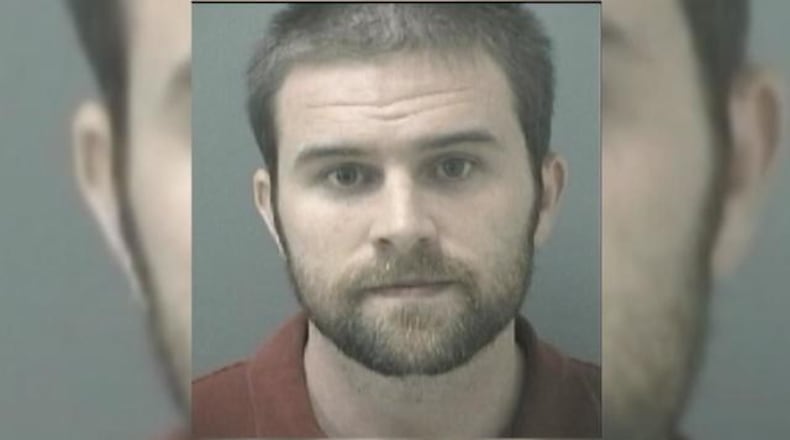The Georgia Supreme Court has tossed out the conviction of a former Cherokee County high school wrestling coach and paraprofessional found guilty in the sexual assault of a sophomore cheerleader.
Robert Leslie Morrow was convicted in February 2014 under a statute that prohibits teachers, principals and administrators from engaging in sexual conduct with students. In its unanimous decision announced Monday, the court found that, because Morrow was a paraprofessional, the statute didn't apply to him. Morrow was sentenced to 240 days in detention and 10 years probation.
The Court of Appeals had overturned the conviction last year, ruling that the state failed to prove any “supervisory or disciplinary authority over the victim” and thus failed to prove “an essential element” of the crime that was charged.
The state appealed that decision to Georgia’s top court, which found that the appeals court erred on the grounds for reversal but not in its ruling.
“Despite the plain language of the statute, the state fought diligently to extend its boundaries,” Morrow’s attorney, Bryan Lumpkin, said Monday. “I always believed that opinion was incorrectly decided, the Court of Appeals indicated its agreement with our position, and the Supreme Court today made very clear that (Morrow) was never in violation of this statute.”
While the state had presented evidence that Morrow had some “general” supervisory position at River Ridge High School, he did not meet the specific criteria laid out in Georgia code, the Supreme Court ruled. He had been hired as a paraprofessional to prevent a special-needs child from disrupting classes. That’s where Morrow, 27, met the cheerleader, 11 years his junior.
The pair began exchanging flirtatious texts and, in December 2010, the cheerleader agreed to meet "Coach Morrow," as he was known at River Ridge, in a grocery store parking lot. There she performed oral sex on him. She changed schools a week later but the sexual relationship continued.
“If the General Assembly desires to expand the scope of (the code) to include paraprofessionals (or other school employees such as bus drivers, cafeteria workers, and janitors), it certainly may do so by defining the persons to whom the statute applies in broader terms,” Justice Keith Blackwell wrote. “But the statute currently applies only to teachers, principals, assistant principals, and other administrators, and this Court cannot judicially rewrite the statute.”
It was the second time the state Supreme Court had weighed in on the Morrow case. In June 2014, the court found that another River Ridge teacher who knew of the illicit relationship should not have been charged under a state law that requires teachers to report reasonable suspicions of child abuse.
In January 2011, when she returned to River Ridge to watch a basketball game, the student told her favorite teacher, Kristin Lee May, that she had been having sex with Morrow. The student was no longer involved with the wrestling coach but, ironically, May and Morrow had begun an affair of their own.
May was arrested seven months later when the student told police about her own relationship with Morrow.
Under the state’s “mandatory reporting” law, the teacher would have been required to report abuse if she had been “attending” the child, the court said. Which teachers would have such an obligation was unclear, as the court acknowledged.
“For instance, when the child is not assigned to the class of the teacher, but the child is enrolled as a student at the same school,” Blackwell wrote in the 2014 decision. “This, however, is no such case.”
About the Author
The Latest
Featured



